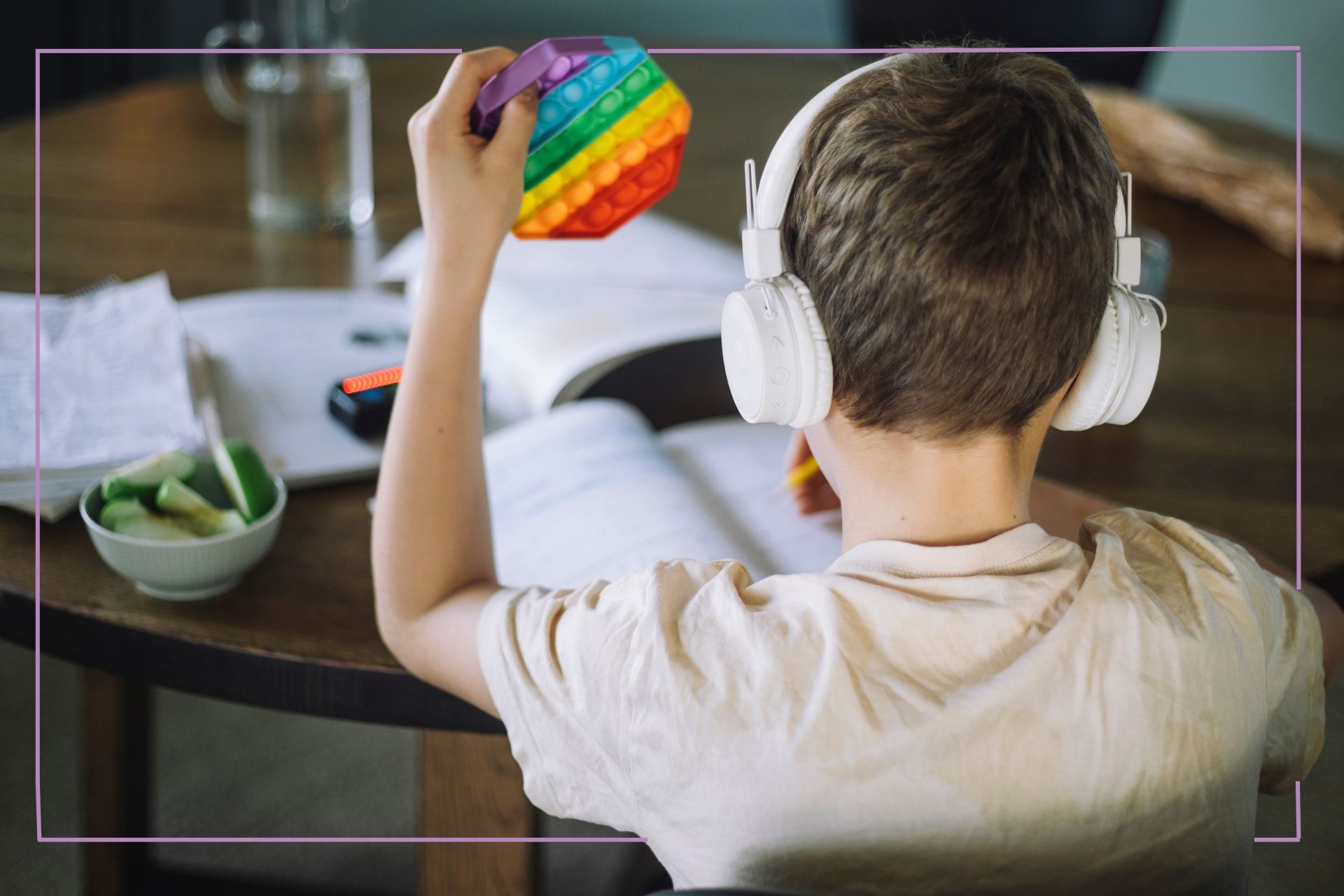Top 5 ADHD personality traits in kids revealed by educational expert - how many do you recognise?
There are so many different symptoms and traits of ADHD, in this article, I focus on the main five.


Children who have ADHD - Attention Deficit Hyperactivity Disorder - come with amazing strengths and five specific personality traits, which I cover in this article.
Have you noticed your child has a unique way of seeing the world? Those differences might actually be superpowers waiting to be discovered, as I talk about in my 6 upsides to ADHD seen in kids, article. I'm a huge advocate of not trying to "fix" behaviours, but leaning into the strengths that each individual child has, recognising certain personality traits can help with this. If you want to learn more, I talk about how early can ADHD signs show in kids too.
For example some children and young people with ADHD experience a combination of difficulties, such as struggles focusing on tasks, as well as impulsivity and hyperactivity, all at differing times or simultaneously. On the plus side, kids with ADHD often have incredible creativity, energy, and problem-solving skills. These abilities can be huge assets at school, at home, and with friends. The key is creating an environment where your child feels accepted and encouraged to be themselves. We've got tips and advice on how to do it.
Attention Deficit Hyperactivity Disorder (ADHD) is a neurodevelopmental difference in how individuals' brains work and respond to the world. There are three main types of ADHD: inattentiveness, hyperactivity, and impulsivity, and the combined type with all three main characteristics (inattentiveness, impulsiveness, or hyperactivity). I go into it in more detail in my article Understanding the three different types of ADHD in children. And, where there are so many different symptoms and traits of ADHD, in this article I focus on the main five.
The five big personality traits of ADHD in kids
- Listening and focusing difficulties
- Impulsivity and conscientiousness
- Hyperfocus
- High-Risk Tolerance
- Combination
1. Listening and focusing difficulties
Children and young people with the inattentiveness type of ADHD struggle to listen and focus on the details when engaging in tasks. They will also likely need help to be organised, get bored quickly and tend to be over- or under-stimulated.
However, some children with ADHD may display inattentive behaviours, and some present with high energy levels, which can be helpful when engaged in physical activities. Equally, having lots of energy may mean some children struggle to sleep and feel restless.
2. Impulsivity and conscientiousness
Children and young people with hyperactivity and impulsivity tend to engage in behaviours such as difficulties waiting, interrupting others, calling out and fidgeting, restlessness (e.g., having difficulty sitting still), and struggles to self-soothe and self-regulate. Some children who experience this are often also spontaneous, which can positively impact their performance on tasks in some cases.
Parenting advice, hot topics, best buys and family finance tips delivered straight to your inbox.
Some children and young people with ADHD tend to have the courage and confidence to embark on new opportunities impulsively without being held back by fear as they then act first and think later. And, some children and young people with ADHD experience a combination of difficulties, such as struggles focusing on tasks, as well as impulsivity and hyperactivity, all at differing times or simultaneously.
3. Hyperfocus
Some children and young people are better at focusing at length on activities linked to their interests, and they can be hyper-focused, which has positive outcomes such as passionately sustaining attention to tasks. Being hyper-focused can help with following schoolwork-related passions and non-learning-related activities (e.g., hobbies such as swimming). Being hyper-focused can also mean that one would need help to end tasks, take breaks and engage in other meaningful tasks (e.g., keeping a tidy room) that are essential for daily living. However, they may be less motivating.
4. High-Risk Tolerance
Children and young people with ADHD can sometimes be tolerant of taking risks and have a high sense of concept in some situations; this can be beneficial, and in others, it can be challenging. For example, a child with ADHD may be more confident about trying to engage in an unfamiliar task in comparison to their neurotypical peers. In another example, children with ADHD may have a reduced sense of danger and are likely to struggle to see the consequences of their actions and understand that certain behaviours, such as jumping off a window seal, are risky and lead to adverse outcomes.
Research has found that the features of ADHD, such as impulsivity and reduced attention skills, hyperactivity, challenges with planning, and reduced organisational skills, have been found to have the most significant effect on academic performance and daily living skills.
5. Combination
The combination of all the traits experienced all at once rather than one particular difficulty in isolation. This 'combined type' is a genuine trait of ADHD.
5 ways to best to support children with ADHD
Parents can offer support to children and young people using a calm and nurturing approach to meet their needs so that they can thrive at home and school.
- Early identification and intervention help these children understand their needs and have the proper support to cope with the demands of schooling and family life. Suppose parents have concerns that their children may have ADHD. In that case, they must speak with their school's Special Educational Needs Coordinator to explore the support that can be given at school and the pathway for getting an official assessment.
- Establishing a consistent, non-negotiable routine is vital as it helps individuals with ADHD regulate the brain's circadian rhythm, positively ripple effect on their sleep patterns and promote overall well-being. Having a routine also enhances time management skills, as it provides predictability when engaging in a sequence of activities, such as getting dressed in the morning and being on time.
- A visual or a written checklist of tasks to achieve expected outcomes is highly critical. It is essential to tick off the visual or checklist as one progresses through a routine. Some children would benefit from verbal prompts combined with visual aids.
- Parents can identify what motivates their children to follow a routine. For example, some may find listening to music helpful in sticking to a task, while others may find it distracting. Finding internal motivation, such as reaching a personal goal or feeling accomplished, is vital for children with ADHD, and parents can take the time to help them explore what that looks like. There is no right or wrong answer; however, searching for the most effective is critical, and the likelihood of following a routine will increase.
- Children and young people with ADHD benefit from using a timer or alarm to help them monitor their ability to stick to a plan and a routine. At the end of each day, parents can support their children in reflecting and evaluating how well they are sticking to a routine and doing more of what works. Parents can help children get to know themselves and stick to what works. Equally, individuals with ADHD should identify one aspect of their routine that does not work and focus on changing that area.
Some parents may opt to explore the use of medication for their children who are diagnosed with ADHD, and the pros and cons would need to be discussed with a health professional.
For more articles from Dr Patricia Britto, take a look at her author page. Dr Britto's most recent 7 ways to make sure your child is school ready, is so helpful on what's really important for your little ones to know about and her article on body autonomy - the 5 things kids never have to do is so insightful - with useful tips.

Dr Britto's qualifications include a Doctorate in Professional Educational, Child and Adolescent Psychology, an MSc in Mental Health in Learning Disabilities and a BSc in Psychology.